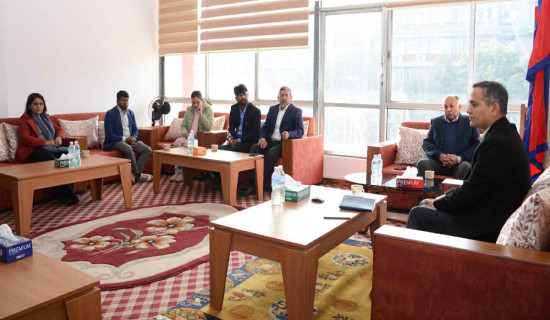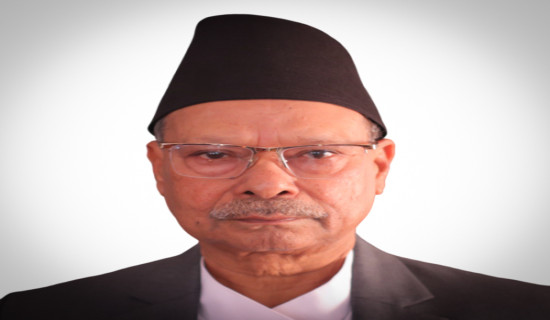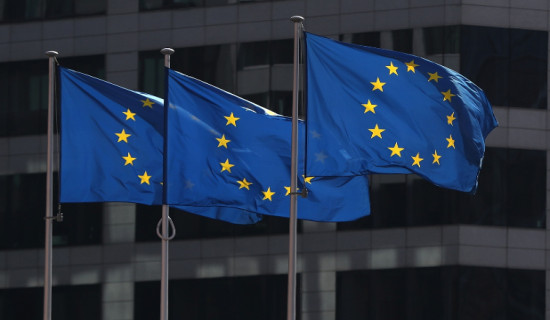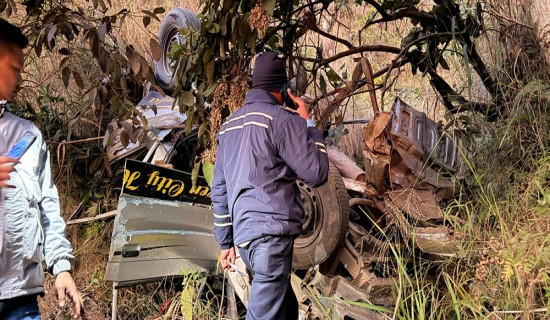- Monday, 5 January 2026
Testing time ahead for government, parties and Gen Zs
Narayan Prasad Ghimire
Kathmandu, Nov 5: With only three days to go for two months since the historic Gen Z protest rocked Nepal, the government, the political parties and the Gen Z youths are being observed closely. Whether the government will be able to meet its mandate of March 5 election to the House of Representatives is its test, while political parties' shakeup and Gen Z's awakening and institutionalization of their protest bear equal significance.
Ongoing consultations
The interim government formed on the back up of the Gen Z protest (September 8-9) is making efforts to materialize the historic responsibility of holding March 5 election. It has held talks with political parties, Gen Zs, civil society and media, making its stand clear on March 5 election and good governance efforts.
Even the diplomatic bodies are made aware of the situation here and cooperation sought from them. "The government is encouraged after the discussion with political parties and Gen Z representatives, for it would help create an atmosphere conducive to election," government spokesperson Jagadish Kharel is repeating before media. However, the political parties and leaders, who blamed the government as unconstitutional and undemocratic initially, have demanded adequate safety for free and fair election.
The government, despite its relentless efforts for good governance and creation of atmosphere for election, is yet to fully win the trust of political parties so that it could intensify the election preparation in collaboration and full support.
It was in quandary in the initial first month on whether act tough against political parties/leaders or concentrate on the election. With constant pressure of the Gen Z, it had hinted action against political parties. Gradually, the wider consultation, including with political parties, seemed helpful in assuaging the rage against parties/leaders.
Although expressing qualm to meet with top leaders, Prime Minister Sushila Karki held a meeting with the two General Secretaries of the Nepali Congress, Gagan Thapa and Bishwo Prakash Sharma, and sought their cooperation on election bid. The discussion is expected to build the electoral atmosphere. The two leaders also spoke on importance of togetherness for making the democratic exercise successful.
In this connection, Home Minister Om Prakash Aryal met former President Dr Ram Baran Yadav at the latter's residence and sought his support in convincing wider circle for making the election successful. As per media story, the first President of the country reminded Aryal of the election to Constituent Assembly under the government led by former Chief Justice Khilraj Regmi in a difficult time. Dr Yadav believed the present civilian government too has a difficult time but would be successful in holding the election.
The government may have been aware that brushing aside political parties either is detrimental- the shying away from election- major task. It is a testing time for government to balance Gen Z demand and major mandate.
Hullabaloo or shakeup?
The political parties, especially the communist and left ones have witnessed a hullabaloo of unification bids and split spree in the wake of Gen Z protest and the scheduled March 5 HoR election. Eight leftist forces including CPN (Maoist Centre) and the CPN (Unified Socialist) have decided the unification. As the significant faction of the Unified Socialist led by Madhav Kumar Nepal is merging with Maoist Centre led by Pushpa Kamal Dahal 'Prachanda', senior leader Jhalanath Khanal, Ghanashyam Bhusal and Ram Kumari Jhankri, among others are left in lurch in Socialist, while Janardan Sharma of Maoist Centre has announced a new campaign.
Although the split and unification of communist parties is not a new phenomenon at all in Nepal's political history, whether the ruckus in these parties ensure shakeup is still awaited. They are in a testing time.
The Nepali Congress, which claims itself the largest democratic party, too is plagued by internal dispute on whether to change the guard of the party before election or after it.
NC President Sher Bahadur Deuba, who was seriously injured during the Gen Z protest on September 9 at his own residence not only stepped aside but also named Vice President Purna Bahadur Khadka as Acting President of the party and left for Singapore for treatment. Deuba's address at the party meeting held after one month of the protest made it clear that he was ready to step down but through a democratic process- the general convention of the party.
The central committee meeting postponed twice is still seeing a hot debate whether to hold the general convention before the March 5 election or after it. A section close to the camp led by party President Deuba are adamant on not holding general convention before election, while General Secretary Thapa and his followers are for changing the guard before the election. But, Thapa is being whipped by the establishment group repeatedly. Leader Krishna Prasad Sitaula went on to blame that General Secretary Thapa was nurturing his secretariat to attack other leaders and cadres in the party, and attempting to capture the party.
As leaders and groups of communist parties with waning base are quitting the factions and parties and announcing unification, another General Secretary of NC, Bishwo Prakash Sharma, said the NC would not split at all.
In the heat of Gen Z protest, some second and third-rung leaders vowed to restructure their parties, but, for most of the leaders and cadres in the major political parties, leadership is still an elephant in the room. Only few leaders are speaking frankly and vocally against the leadership. Do the second and third rung leaders in these parties have guts to materialize anti-incumbency drive that ensure shakeup? It is a testing time for them as well.
Gen Zs warrant unified stand
Another hurdle before the government is divided Gen Z. Interestingly, as the Gen Z representatives met Prime Minister and political leaders, they had differing views. Some were underscoring good governance and stringent action to those suppressing the protest and some for election. Some even went to the stretch that directly elected executive is a need of hour.
A Gen Z representative was heard of demanding that government took initiative to first unify the Gen Z so that their demands could be narrowed down. It is clear that as this civilian government is an interim one and could not amend the constitution, the Gen Z demand of ensuring directly elected President or Prime Minister is not enforceable. However, few of them are clear that major mandate of the present government is holding election in a free and fair atmosphere.
Irrespective of the diverse stands, the positive side is that they have made corruption control and guarantee of good governance the most common demand, which figured vehemently in their protest as well.
It is therefore essential for Gen Z groups to sit together and funnel their issues. Once the priorities are made clear and pressure campaigns kept intact, their lobby counts, otherwise divided Gen Z warrants a hosts of challenges, including the infiltration within the groups and hijacking of agenda. At present, they are the major pressure groups to keep both the government and political parties in track. But, getting swayed after scattered issues and battling within groups is deleterious to the good governance and election mandate.
In order for building consensus with narrowing down of agenda and setting priorities, wider discussion and consultations are imperative. The conversation among diverse sectors helps in formalizing the agenda and reinforcing the campaign. It further creates a foundation for organization building when they win the trust of multiple sectors. Organization, leadership, followership, agenda and activities enrich the Gen Z to face election in case they want to emerge as political parties. What they need to know is digital campaign is not enough to build unity and run organizations in the physical realm where there are still millions of people to be addressed and taken care of.
Moreover, President Ramchandra Paudel likened Nepal's Gen Z protest (Sept 8-9) to the emergence of Youth movements around the world advocating for 'good governance'.
The Head of the State also claimed in the ongoing 2nd World Summit for Social Development in Doha, Qatar that by safe landing the country and safeguarding the Constitution and democratic system, Nepal is slated to hold the election to the House of Representatives on March 5, 2026.
The Head of the State further took an opportunity to inform the global community that Nepal believes the March 5 election would provide a political solution for Nepal, setting a foundation for good governance, development and prosperity.
At a time when some political leaders are still smelling a rat on various elements/forces over the Gen Z protest that toppled the government and placed the interim government, the President's reference to recent September 8-9 uprising, the Gen Z protest, as the demand of 'good governance' and the 'safe landing' the country and 'safeguarding constitution' bears significance.
Neither the election nor the good governance drive is a sole responsibility of the present government, but chiefly a shared responsibility of government, political parties, Gen Z. It therefore is a testing time for them, requiring utmost trust, collaboration and cooperation. The President's judicious action in a tough time helped in 'safe landing' the country. Now, time has come especially for the three sides- government, political parties and Gen Zs to successfully navigate the way ahead.RSS

.jpg)

-original-thumb.jpg)
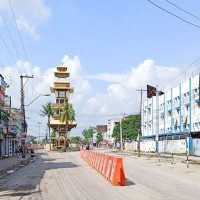
-square-thumb.jpg)
-original-thumb.jpg)
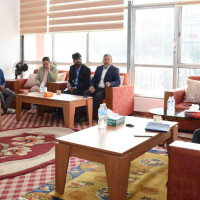
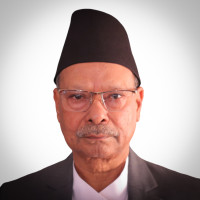
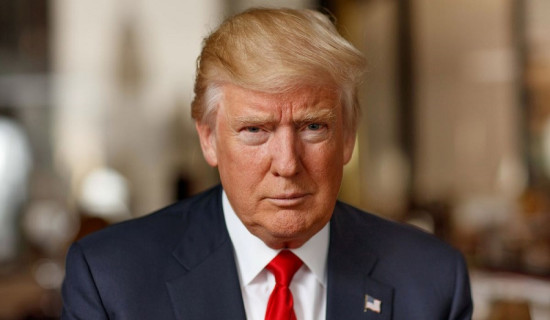
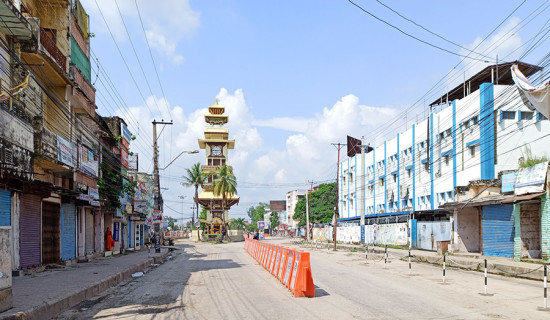
-original-thumb.jpg)
